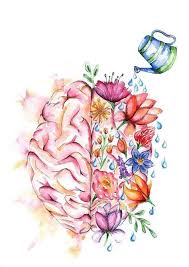Mental Health Awareness Week: Key Stages
Challenges are an inevitable part of life, but some common life stages pose greater risks to our mental health than others. We all go through them, they are our rites of passage: birth, the transition from childhood to adulthood, marriage, death
Often it is at times when we face change, such as illness, divorce, retirement that we suddenly find it harder to meet our needs- and it is at those times that we are at risk of becoming depressed.
When pressures and demands prevent people from meeting important needs in their life, they naturally feel stressed. And. in turn, when people reach a point of feeling helpless to meet those needs, they can start to feel trapped. Mulling over unmet needs can stress the brain and eventually produce what we call clinical depression.
Depression is a growing problem in modern life. It can strike at any age; no age group is immune.
There are multiple different causes of depression, there is no blanket explanation. But it is not who you are or what happens to you that determines whether you will become depressed or not.
No-one chooses to be depressed.
Some people react to the idea that 'depression is not primarily a biological disease' with an unthinking response like, "Are you saying it's people's own fault that they become depressed?" As if it's nothing to do with a person's emotional history and learning. They interpret the idea to mean that depression is somehow a choice a person makes, or a reflection of personal weakness.
But of course, the truth is far more subtle than that. A small proportion of people do have a genetic predisposition to reacting to life's events with greater stress, and of course, no-one wants to be depressed. Strong, intelligent, good people become depressed. Sometimes life can be overwhelming for anyone. But it's important to remember:
Depression isn't solely an event driven phenomenon.
People can and do have all kinds of terrible things happen to them without becoming depressed, while others become depressed even when outwardly their lives appear to be perfectly fine. So, it's not just about what happens to a person so much as what they inwardly do with what happens to them- how they respond and whether they are prone to negative rumination.
Negative rumination can happen even during periods of stability and calm. While outwardly life may be calm, inwardly anxiety may be churning. Conversely, a person's life may be outwardly harsh but inwardly they be calm and optimistic.
Resilience can be learned and developed. If someone has been traumatised or spent years listening to someone else interpret life depressingly, then it is not their fault. If life becomes incredibly overwhelming, that is not their fault either.
But there do seem to be times in a person's life, often times of transition, when it becomes harder to meet their emotional needs. This leaves them vulnerable, and potentially more prone to depression. But it's feelings of helplessness and hopelessness about ever meeting those needs again that allow depression to take hold.
If someone has learned depressive attitudes, had traumatic, emotional conditioning, or not been exposed to enough reasonable challenge in childhood, these periods in life may pose a greater risk.
Human beings suffer in context. They suffer in the context of their current situation, but also in the context of their emotional history and learning and their innate character traits.
Relationships have as much to tell us as other life contexts about why some people depress and others do not.
What's more, attitudes, feelings, and ways of responding to life can all be learned from other people, so the more depressed people there are, the easier it is for depression to spread through communities.
Some people learn depressive attitudes from others. Living with a depressed person is. unsurprisingly, a risk factor for becoming depressed.
There follows a list of key stages in the journey of our mental health and the times where we should be extra mindful of ourselves and our loved ones.
celia.turner@hotmail.co.uk


